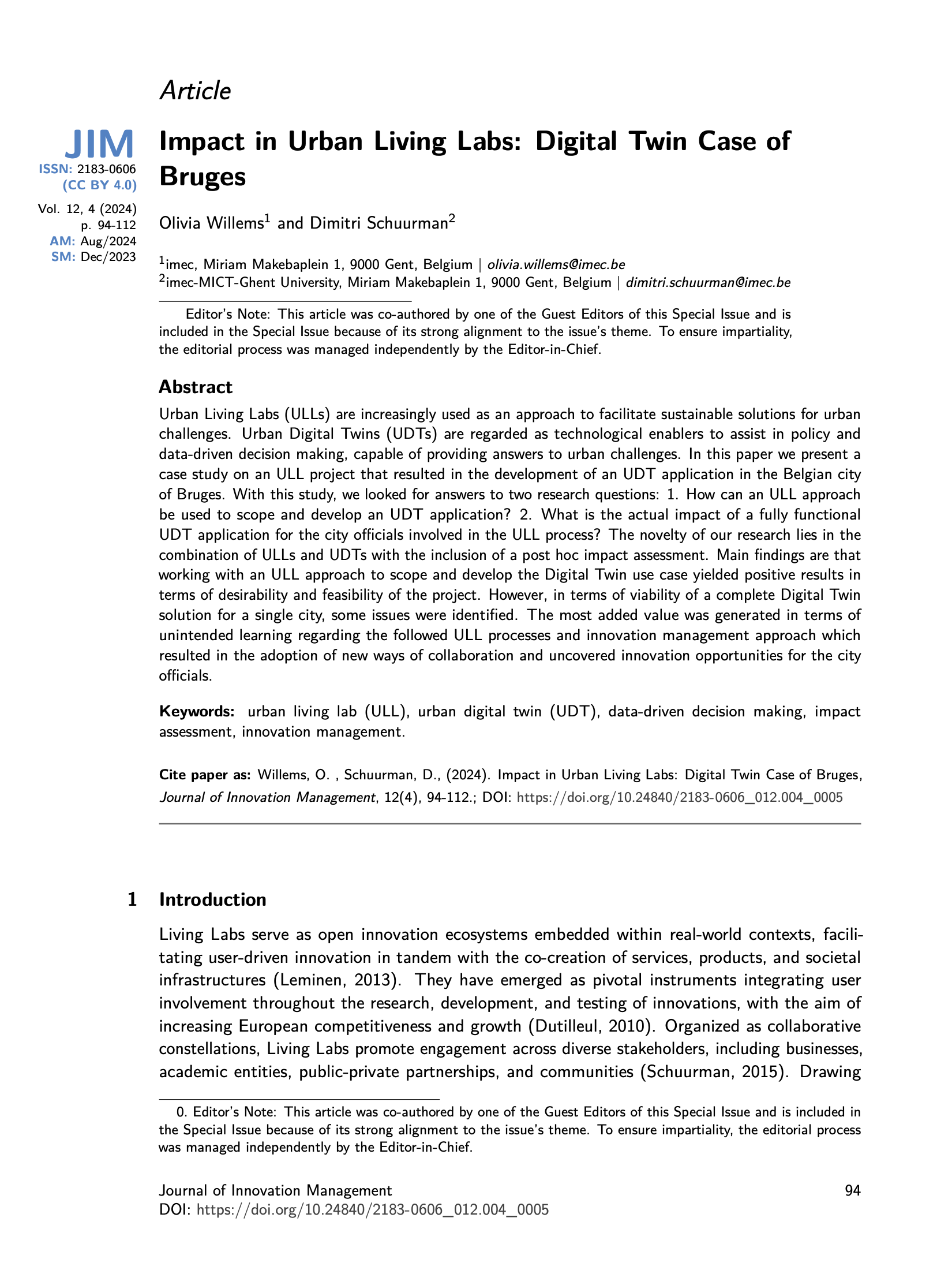Impact in Urban Living Labs: Digital Twin Case of Bruges [Special Issue on Living Labs and Collaborative Innovation]
Main Article Content
Abstract
Urban Living Labs (ULLs) are increasingly used as an approach to facilitate sustainable solutions for urban challenges. Urban Digital Twins (UDTs) are regarded as technological enablers to assist in policy and data-driven decision making, capable of providing answers to urban challenges. In this paper we present a case study on an ULL project that resulted in the development of an UDT application in the Belgian city of Bruges. With this study, we looked for answers to two research questions: 1. How can an ULL approach be used to scope and develop an UDT application? 2. What is the actual impact of a fully functional UDT application for the city officials involved in the ULL process? The novelty of our research lies in the combination of ULLs and UDTs with the inclusion of a post hoc impact assessment. Main findings are that working with an ULL approach to scope and develop the Digital Twin use case yielded positive results in terms of desirability and feasibility of the project. However, in terms of viability of a complete Digital Twin solution for a single city, some issues were identified. The most added value was generated in terms of unintended learning regarding the followed ULL processes and innovation management approach which resulted in the adoption of new ways of collaboration and uncovered innovation opportunities for the city officials.
Article Details
Authors who publish with this journal agree to the following terms:
- Authors retain copyright and grant the journal right of first publication with the work simultaneously licensed under a Creative Commons Attribution License that allows others to share the work with an acknowledgement of the work's authorship and initial publication in this journal.
- Authors are able to enter into separate, additional contractual arrangements for the non-exclusive distribution of the journal's published version of the work (e.g., post it to an institutional repository or publish it in a book), with an acknowledgement of its initial publication in this journal.
- Authors are permitted and encouraged to post their work online (e.g., in institutional repositories or on their website) prior to and during the submission process, as it can lead to productive exchanges, as well as earlier and greater citation of published work (See The Effect of Open Access).

